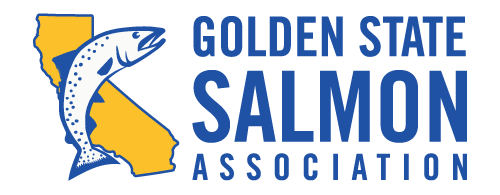Agencies responding to drought threat to save salmon
San Francisco — The California Dept. of Fish and Wildlife (CDFW) is trucking all of its hatchery baby salmon to release sites in and around SF Bay this year to minimize drought-related losses. This development follows requests from the Golden State Salmon Association (GSSA) and meetings with CDFW urging the state to act. The US Fish and Wildlife Service has also decided to truck roughly 950,000 baby salmon from the Coleman Hatchery near Redding to the west Bay.
Although it won’t help this year’s restricted season, the trucking should produce a large number of 20” jacks by next year and allow a fishing season in 2023. This will be especially valuable considering water temperature forecasts now show that water temperatures will likely be lethal for spawning salmon by fall unless the State acts to require added temperature protections.
Also, after GSSA’s request, the Department will use some new Bay release sites west of the regular releases at Mare Island near Vallejo.
The need to truck hatchery fish in part stems from the failure of state water managers to better balance water allocation to protect salmon and the environment. While trucking hatchery fish will save them, the fish born in the wild are likely to die.
“Salmon fishermen and women are grateful for the trucking of hatchery salmon but we mourn the loss of the state’s wild salmon runs caused by the failure of government to better manage finite freshwater sources in the Central Valley,” said John McManus, president of the Golden State Salmon Association. “We hope the state will act to avoid the massive fish kills we saw in 2014 and 2015.”
GSSA asked the department to use release sites further west in SF Bay because it’s the easiest and cheapest, way to maximize survival and returns of hatchery fish. West Bay release sites basically double the number of hatchery fish that survive to adulthood, providing equivalent benefits of building several new hatcheries.
Prior to CDFW’s decision to truck to the west Bay, GSSA staff did advance scouting, initiated and shared contacts of local land owners, and assembled and shared maps and photos with CDFW.
The decision to truck will add another three to four million fish that will contribute significantly to the fishery in the next few years.
About GSSA: The Golden State Salmon Association (www.goldenstatesalmon.org) is a coalition of salmon advocates that includes commercial and recreational salmon fishermen and women, businesses, restaurants, a native tribe, environmentalists, elected officials, families and communities that rely on salmon. GSSA’s mission is to restore California salmon for their economic, recreational, commercial, environmental, cultural and health values.
Currently, California’s salmon industry is valued at $1.4 billion in economic activity and 23,000 jobs annually in a normal season and about half that much in economic activity and jobs again in Oregon. Industry workers benefiting from Central Valley salmon stretch from Santa Barbara to northern Oregon. This includes commercial fishermen and women, recreational fishermen and women (fresh and salt water), fish processors, marinas, coastal communities, equipment manufacturers, the hotel and food industry, tribes, and others.
# # # #
Media contact: John McManus, 650-218-8650 john@goldenstatesalmon.org
Michael Coats, Coats PR, 707-235-6203
